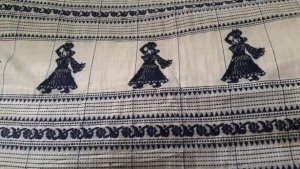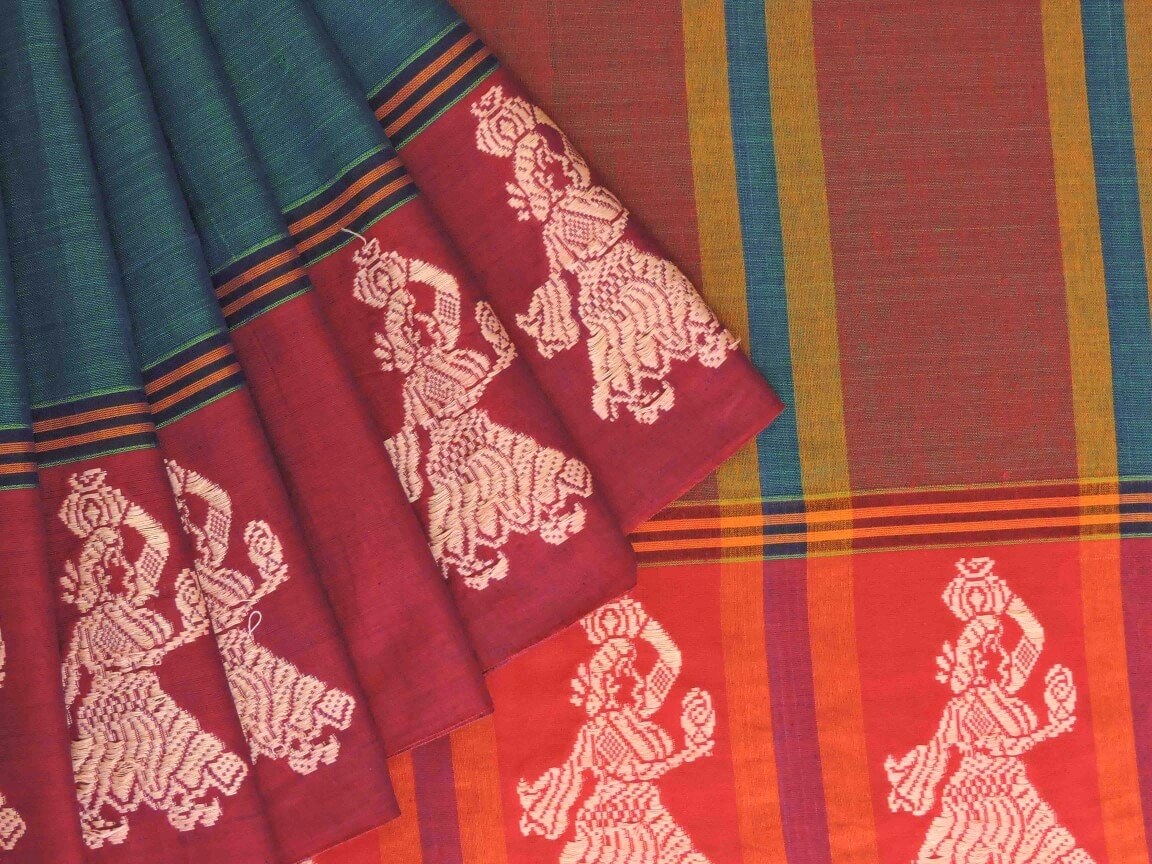Gollabhama (milkmaid) patterns that adorn the border of the saree. Legend has it that in the Dwaparayuga, milkmaids would carry milk and curd in earthen pots as an offering to Lord Krishna. The Gollabhama motifs redefine the aesthetics of the saree. There are three main motifs namely, Gollabhama, Bathukamma and Kolatam with Gollabhama being the most popular among the lot.
The weaving of these sarees requires a lot of dexterity. Unfortunately, the hard work of the laborers has not beared any fruit in the recent times. There was a time when the number of Gollabhama weavers were somewhere around 2000 but now the numbers have dropped to less than two dozen. One appalling fact is that the sarees are veering towards doom even though they are globally famous having the Geographical Indication (GI) tag.

The weavers attribute the reason to the poor payment of wages. They are paid about Rs.350/- for a saree that takes three to four days to weave. The younger generation in their family doesn’t take up this as a livelihood and migrate towards greener pastures.
The market is evolving owing to westernization and the trends are changing dynamically. The customers prefer printed patterns embossed on the sarees rather than the hand weaved ones. Also, the fashion of monochrome sarees devoid of any patterns is going strong.

Recently, K. Chandrashekhar Rao, the Chief Minister of Telangana has called for adopting measures for the welfare and betterment of weavers in the state. Apart from buying handlooms, and perhaps adapting them to more trendy attires and accessories, one can only hope that the government’s efforts can support the weavers and help them preserve these traditional and folk arts.



